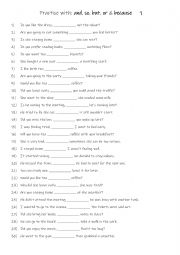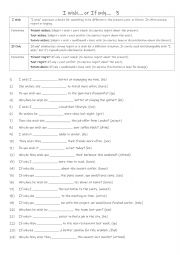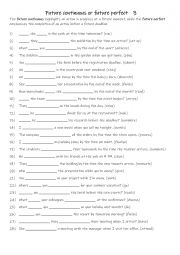
Feelings Handout
Level: elementary
Age: 6-16
Type:

A2+-B1 Practise with: present continuous or past continuous passive voice 2
Learning the future continuous and future perfect tenses is really essential for expressing specific future actions and time relationships. The future continuous (e.g., I will be working at 3 PM tomorrow) describes actions that will be in progress at a particular moment in the future, which is useful for planning or predicting ongoing events. The f...
Level: intermediate
Age: 9-100
Type:

age or ability
an adopted text to th official program
Level: intermediate
Age: 18-100
Type:

A1+- A2 Practise with and, so, but, or & because 1
Students should learn conjunctions like and, so, but, or, and because as they are fundamental for creating cohesive and meaningful sentences. These words help connect ideas logically, express relationships like addition, contrast, cause-and-effect, and choice, and improve the overall flow of speech and writing. By mastering these conjunctions, stud...
Level: elementary
Age: 9-100
Type:

Questions with and without do or does
Pupils have to form questions.
Level: intermediate
Age: 10-11
Type:

Five senses - test
Level: elementary
Age: 6-100
Type:

B1-B2 I wish�. or If only�. 3
First, students need to familiarise themselves with the 2 patterns and their use. Then they read the sentences to work out which tense is needed to complete the gap-fill using the infinitive in (). Each pattern is used 12 times! Answers on page 2
Level: intermediate
Age: 10-100
Type:

Apple Variety Testing Chart
Level: intermediate
Age: 10-15
Type:

big or small
Easy worksheet about adjectives BIG/small
Level: elementary
Age: 5-7
Type:

Read and tick or cross
Cambridge preparation exercise
Level: elementary
Age: 7-10
Type:

A2+-B1 Future continuous or future perfect 3
First, students need to familiarise themselves with the 2 tenses and their use. Then they read the sentences to work out which tense is needed to complete the gap-fill using the infinitive in (). Each tense is used 12 times! Answers on page 2
Level: intermediate
Age: 9-100
Type:

B1-B2 Active or passive voice using: present simple passive, past simple passive, future simple passive, present continuous active, past continuous active, past continuous passive, present perfect passive, past perfect passive, future perfect passive, fut
Students familiarise themselves with the tenses and use, then they read the sentences to work out which one is needed to complete the gap-fill using the infinitive in (). Answers on page 2.
Level: intermediate
Age: 10-100
Type:

English 8 - ILSW
Level: intermediate
Age: 13-14
Type:

Am, is or are
Level: elementary
Age: 4-10
Type:

For or since 1
With answers.
Level: elementary
Age: 8-100
Type:
|
|
|